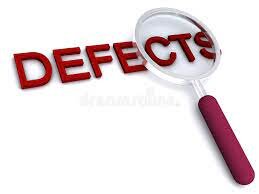
Introduction
When engaging in a real estate transaction, the purchase agreement is one of the most crucial documents you’ll encounter. This legal document plays a vital role in outlining the terms and conditions of the sale, ensuring a smooth and transparent process for both the buyer and the seller. In this article, we’ll explore the significance of the purchase agreement, its key components, and the importance of leveraging the expertise of real estate professionals.

Understanding the Purchase Agreement
The purchase agreement is a foundational legal document that solidifies the intentions of both the buyer and the seller in a real estate transaction. It serves as a blueprint for the sale, encompassing essential details such as the purchase price, closing date, contingencies, and conditions that must be met for the sale to be completed successfully. Whether you’re a buyer or a seller, comprehending the intricacies of the purchase agreement is vital to safeguard your interests and ensure a fair and secure transaction.
Key Components of a Purchase Agreement
A well-drafted purchase agreement should include the following key components:

1. Purchase Price:
The purchase agreement must clearly state the agreed-upon purchase price for the property. This ensures that both parties are on the same page regarding the financial aspect of the transaction. It’s essential to specify whether the purchase price will be paid in cash or if financing will be involved.

2. Closing Date:
The closing date indicates when the transaction will be finalized, and property ownership will be transferred from the seller to the buyer. Both parties should agree on this date, considering factors such as mortgage approval, property inspections, and any other contingencies.

3. Contingencies and Conditions:
Contingencies and conditions must be met for the sale to proceed. Common contingencies include financing approval, satisfactory home inspections, appraisal value, or selling the buyer’s current property. These contingencies protect the buyer and the seller, ensuring that the transaction moves forward only if specific conditions are fulfilled. We aren’t attorneys, but since we’ve closed so many houses, we are very experienced with purchase agreements, and we’d be happy to answer any questions you may have.

4. Disclosures:
The purchase agreement often requires the seller to disclose any known issues or defects related to the property. These disclosures ensure the buyer is fully aware of the property’s condition before finalizing the purchase. This section may include the property’s history, environmental concerns, or potential encumbrances.

5. Signatures:
The buyer and seller must sign the purchase agreement to indicate their agreement to the terms and conditions stated within the document. The signatures validate the contract and create a legally binding agreement between the parties involved.

The Role of Real Estate Professionals
While buyers and sellers can draft their purchase agreements, it is highly recommended to seek the guidance of experienced real estate professionals. Real estate agents or attorneys specializing in real estate transactions have the expertise to ensure that the purchase agreement adheres to legal requirements and protects your best interests.
These professionals can:
- Explain the implications of the terms and conditions stated in the purchase agreement.
- Help negotiate the terms of the agreement to ensure a fair and balanced transaction.
- Assist in conducting due diligence to uncover any potential issues or concerns.
- Guide relevant laws, regulations, and disclosures.
- Offer recommendations and insights based on their industry knowledge and experience.

FAQs about Purchase Agreements
Q: What is a purchase agreement in a real estate transaction?
A: A purchase agreement, also known as a sales contract or purchase contract, is a legally binding agreement between a buyer and a seller that outlines the terms and conditions of a real estate transaction. It specifies the purchase price, contingencies, closing date, and other important sale details.
Q: Why is having a purchase agreement important when buying or selling a property?
A: A purchase agreement is crucial as it clarifies and protects buyers and sellers in a real estate transaction. It ensures that all parties involved understand and agree upon the terms of the sale, including the purchase price, financing conditions, inspection contingencies, and other relevant provisions. A well-drafted purchase agreement helps minimize misunderstandings, disputes, and potential legal issues.
Q: What are the essential components of a purchase agreement?
A: A purchase agreement typically includes the following key elements:
- Identification of Parties: The agreement should clearly state the buyer’s and seller’s names and contact information.
- Property Description: It should provide a detailed description of the property being sold, including its address, legal description, and any relevant property identification numbers.
- Purchase Price and Terms: The agreement should specify the purchase price, payment method, and any financing terms, such as down payment, loan contingencies, or seller financing.
- Contingencies: Contingencies outline conditions that must be met for the sale to proceed, such as satisfactory home inspections, appraisal results, or financing approval.
- Closing Date: The purchase agreement should establish a mutually agreed-upon closing date, which is the date when the property ownership is transferred from the seller to the buyer.
- Disclosure Obligations: Sellers are typically required to disclose any known defects or issues with the property, and the purchase agreement should outline these disclosure obligations.
- Default and Remedies: The agreement should specify the consequences of default by either party and the available remedies, such as termination of the agreement or specific performance.
It is important to note that the specific terms and provisions may vary depending on local laws, the complexity of the transaction, and the involvement of real estate professionals.
Q: Can the terms of a purchase agreement be changed after it has been signed?
A: A purchase agreement can be modified or amended if all parties agree to the changes and formally document them through a written addendum. However, following any requirements or procedures outlined in the original purchase agreement is essential to ensure the modifications are legally valid and enforceable.
Q: What are the consequences if one party fails to fulfill its obligations under the purchase agreement?
A: If one party breaches the purchase agreement, the consequences will depend on the terms specified in the agreement and applicable laws. Remedies may include legal action seeking damages, specific performance (compelling the breaching party to fulfill their obligations), or agreement termination. Consulting with a real estate attorney is recommended to understand your rights and options.
Q: Do I need a purchase agreement if I’m working with a real estate agent?
A: A purchase agreement is essential, even when working with a real estate agent. While the agent can facilitate the negotiation and preparation of the agreement, it is ultimately a legally binding contract between the buyer and the seller. The purchase agreement protects all parties involved and ensures a clear understanding of the terms and conditions of the transaction.

Conclusion
In conclusion, a purchase agreement is a fundamental legal document that safeguards buyers’ and sellers’ rights and interests in a real estate transaction. It outlines the terms and conditions of the sale, including the purchase price, closing date, and contingencies. Working with experienced real estate professionals ensures the purchase agreement is well-done.

Local Honest Homebuyer
And here is an offer that is hard to refuse; reach out to us, and we’ll help you. We are local real estate buyers, and we can answer your questions. Check out our Google reviews, LOCAL HONEST HOMEBUYER GOOGLE REVIEWS
